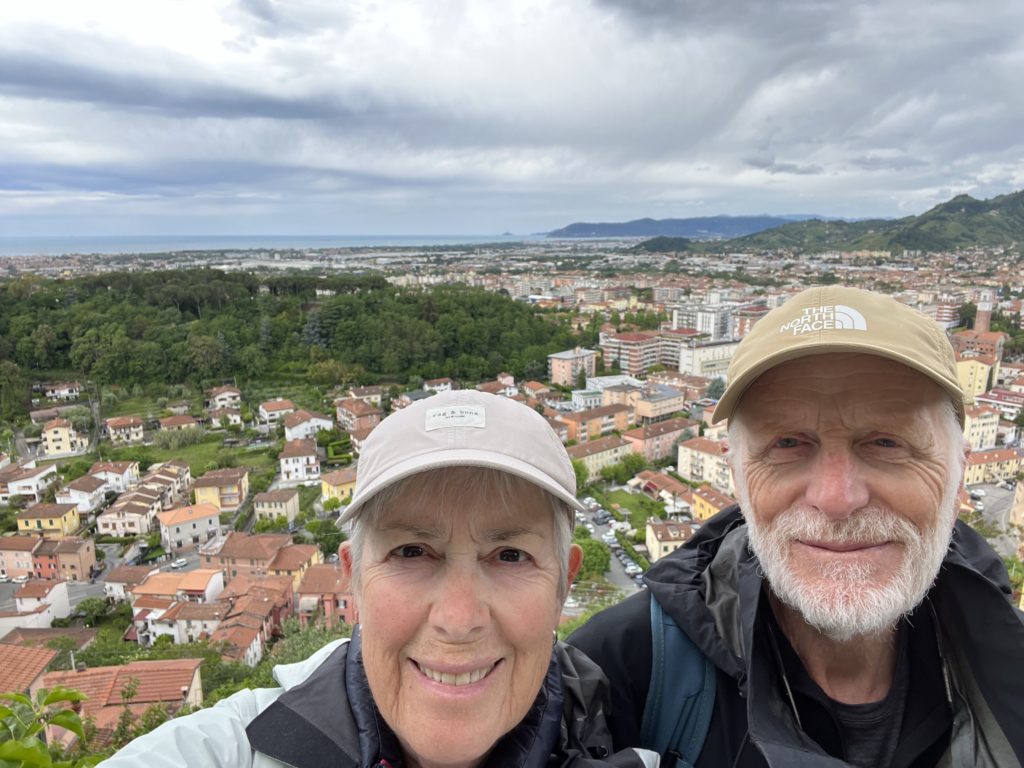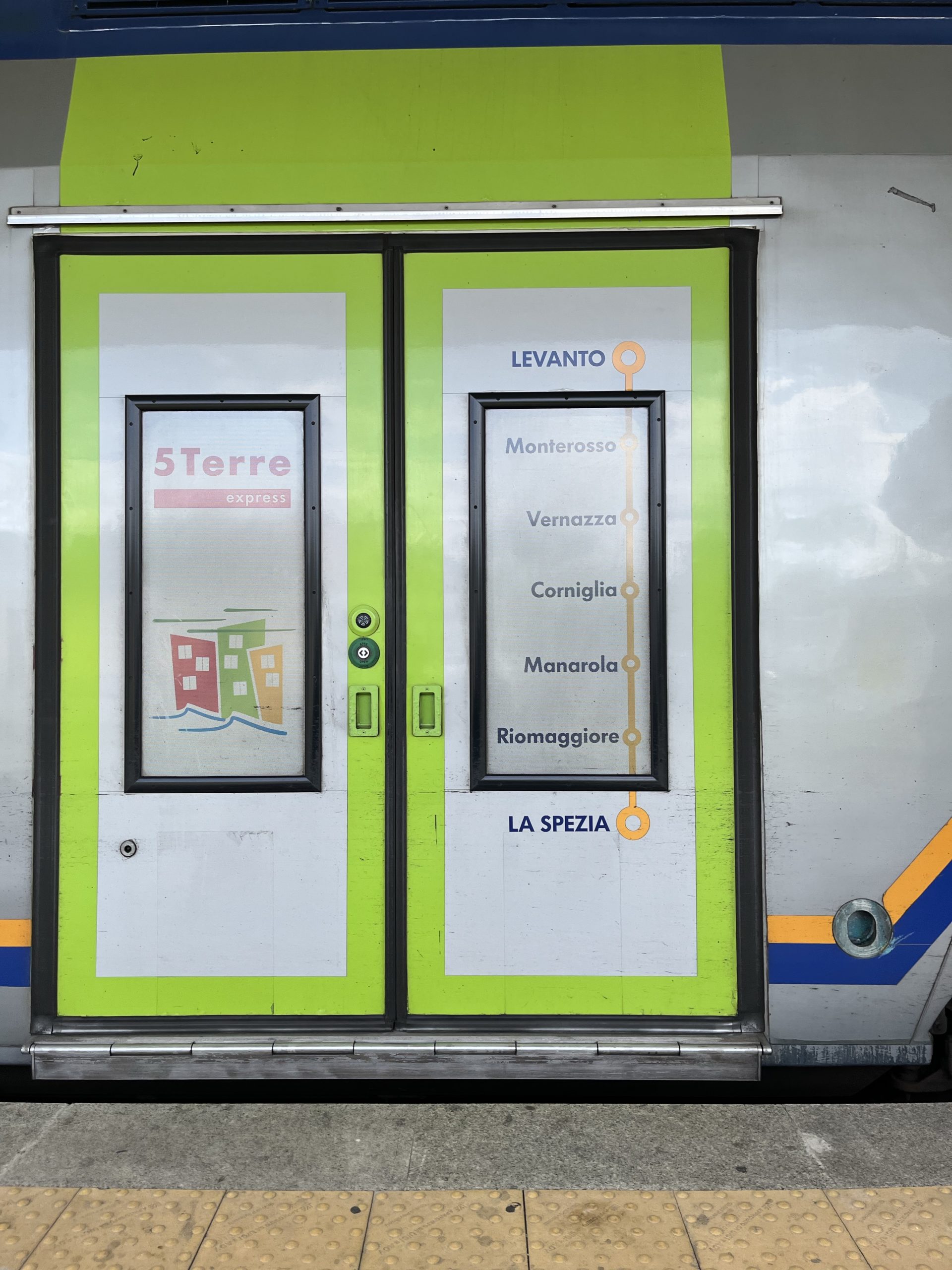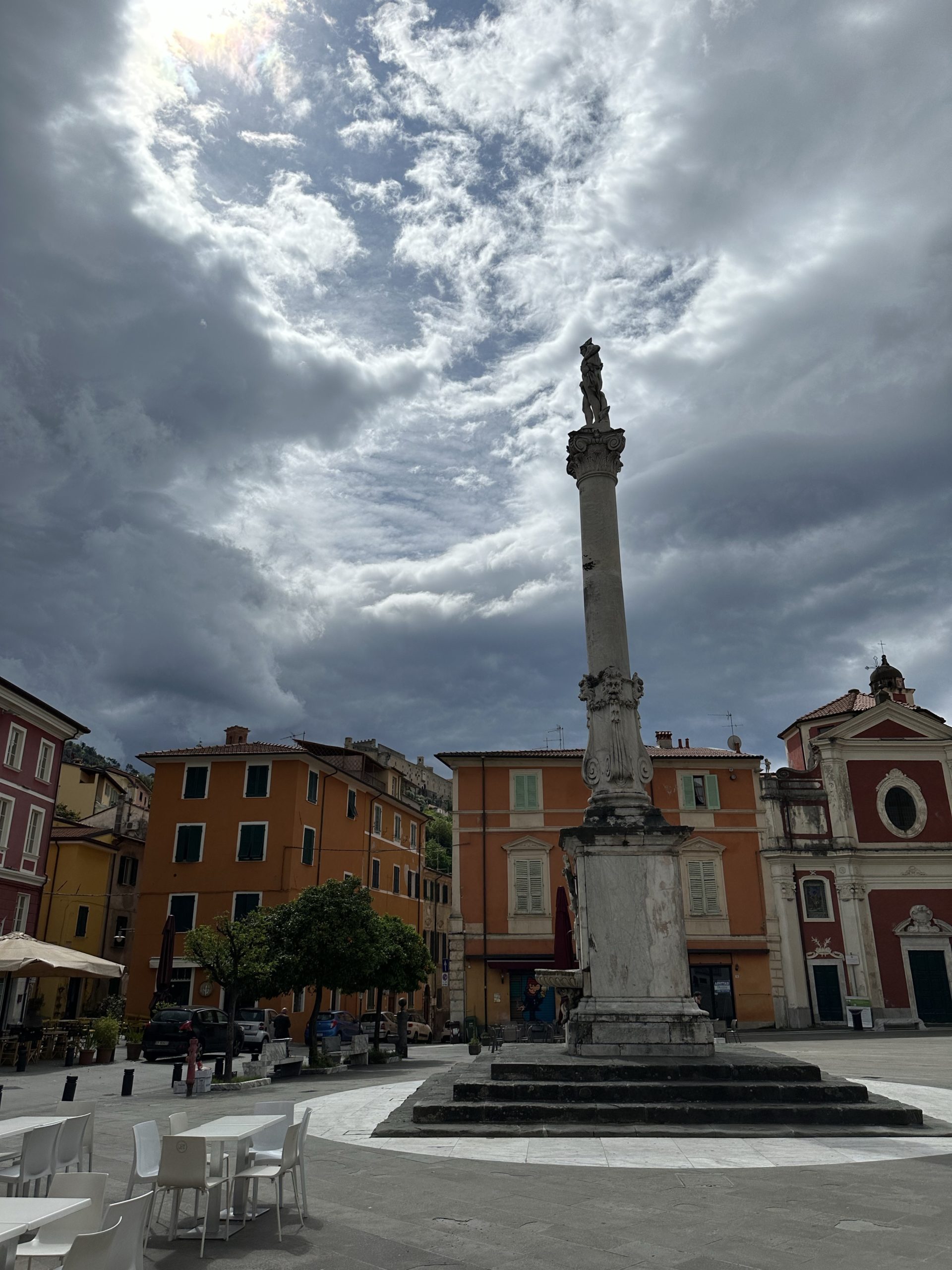Sarzana to Massa to Fidenza, 24.6km
We decided to take the short train ride to Massa and walk to the sea rather than along the route, which would have entailed a steep climb at the beginning and a steep climb at the end, the archeological museum at Luni (closed on Monday) and the industry around the marble quarries high up in the mountains.

Leaving our bags at the hotel, we walked 5kms along the Viale Roma road straight to the Mediterranean! Beyond a wonderful sculpture of giant blocks of marble, there was access to a stretch of “free beach”, bounded on either side with fenced areas of beach huts and deck chairs for rent. We sat for a long while out on a breakwater (also constructed of Carrara marble!), enjoying the sun, sound of the waves and sea air. Just north is the Ligurian stretch of coast, Cinque Terra, where we walked in 2017.

Later, back in town, we located a shop where Paul bought new insoles for his boots, having discovered the cause of a new blister! Dinner was standard but very good: ricotta spinach ravioli and penne arrabiata.
 The following morning, with a few hours before our journey by train and bus to Fidenza, we decided to hike up to the Castello Malaspina di Massa. It was a very steep trek up narrow cobbled roads to the gates of the impressive castle, unfortunately only open at weekends. But, we were rewarded with great, though cloudy views out to the Mediterranean and behind to the Apuan Alps.
The following morning, with a few hours before our journey by train and bus to Fidenza, we decided to hike up to the Castello Malaspina di Massa. It was a very steep trek up narrow cobbled roads to the gates of the impressive castle, unfortunately only open at weekends. But, we were rewarded with great, though cloudy views out to the Mediterranean and behind to the Apuan Alps.

The castle, which has a long history of ownership and structural changes, was the finest residence of the Malaspina family between the 15th and 17thCs.
In 1944, the castle was a prison. After the Allies destroyed the remand centre in the town, the occupying German forces transferred more prisoners to the castle. In September 1944, during a brutal massacre of clerics and civilians suspected of collaborating with the partisans, the SS evacuated the castle and executed the prisoners on the banks of a nearby river.
In 2006 the Comune di Massa was awarded the Medalia d’Oro al Merito Civile (the Gold Medal for Civil Merit) which recognized the Partisans’ fight against Fascism, those killed in combat, the civilian opposition to the harsh German orders, the courage of Massa’s women in their search for food and the support for the Partisans’ fight.






